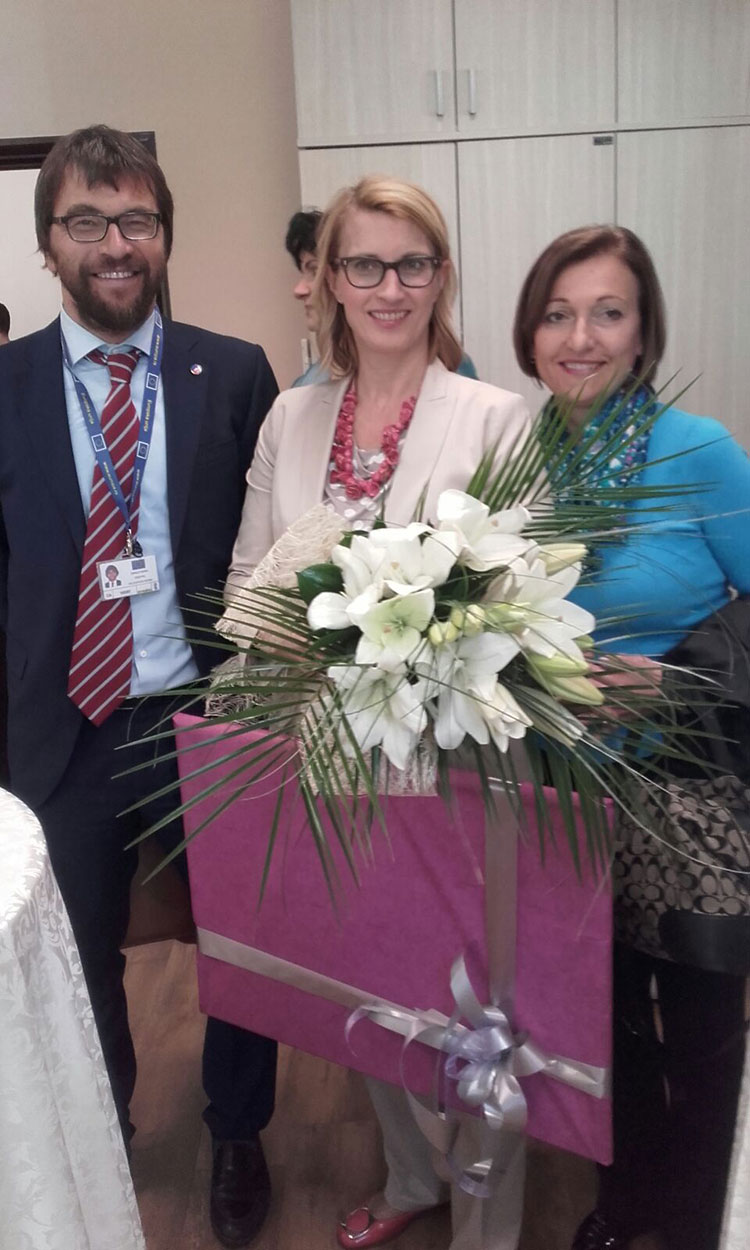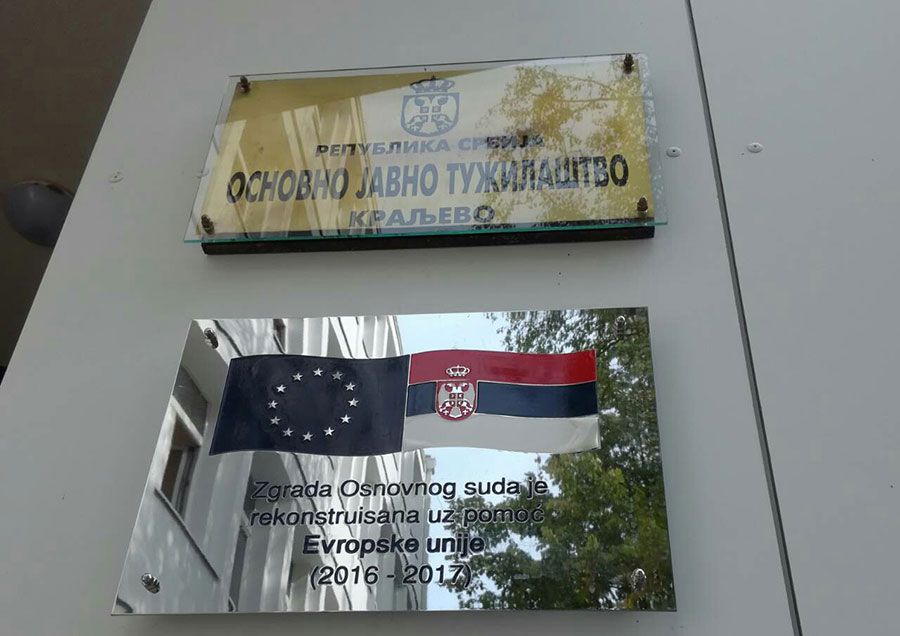The building of the Basic Court in Kraljevo has been reconstructed thanks to EU funding – channelled through the IPA instrument and European Investment Bank loans to the tune of EUR1.55 million – after suffering serious damage in an earthquake in November 2010.
Ceremony marking the inauguration of the renovated building was attended by Minister of Justice Nela Kuburovic, Deputy Head of the EU Delegation to Serbia Mateja Norcic Stamcar, President of the Basic Court in Kraljevo Zlata Djordjevic, Kraljevo Public Prosecutor Snezana Dzamic as well as the Mayor of Kraljevo Predrag Terzic.
 Deputy Head of the EU Delegation to Serbia Mateja Norcic Stamcar said that the Delegation was implementing a series of projects aimed specifically at improving the efficiency of justice, adding that “courts across Serbia have benefitted from over EUR700,000 donated in the form of more than 950 computers, scanners, printers, servers and other IT equipment.”
Deputy Head of the EU Delegation to Serbia Mateja Norcic Stamcar said that the Delegation was implementing a series of projects aimed specifically at improving the efficiency of justice, adding that “courts across Serbia have benefitted from over EUR700,000 donated in the form of more than 950 computers, scanners, printers, servers and other IT equipment.”
She said that assistance extended to judicial system should be put into the wider perspective of accession negotiations and reminded that chapter 23 (dealing with justice) had already been opened. She quoted Commissioner for European Neighbourhood Policy and Enlargement Negotiations Johannes Hahn who had recently said that “the pace of negotiations was in fact determined by Serbia’s own ability to implement reform, particularly in the area of rule of law.”
“Apparently, the rule of law remains at the top of Serbia’s priorities. This is indicated also by the EU’s latest approach to negotiations which focuses on chapter 23. Turns out that reform in the area of rule of law are more complex and take more time to yield results,” Norcic Stamcar.
EU’s strategy for the rule of law-related reform in Serbia is in line with the National Judicial Reform Strategy adopted in 2013. The Strategy underlines the need for infrastructure investments in courts and prosecution facilities targeted at tackling the lack of courtrooms and prosecutorial cabinets, thereby increasing the number of trial days per judge, reducing the time between the two hearings and significantly expediting the investigative proceedings.
Most facilities hosting courts and prosecutors’ offices are between 30 to 60 years old and have in previous two decades been minimally maintained. Furthermore, the Basic Court in Kraljevo was seriously damaged in the November 2010 earthquake, but now, thanks to the reconstruction, the existing working area has been expanded, allowing the number of trials, hearings and productivity of the staff to increase and thus decrease the backlog and the time for citizens to have justice.
In terms of security – witness rooms, security passages allowing safe escort of detainees from detention to the court rooms and vice versa, camera system have been provided. Also, the reconstruction has ensured accessibility for persons with disabilities.
The reconstruction works have been carried out in accordance with the recently adopted legislation related to energy efficiency standards, allowing smooth issuance of relevant Energy Efficiency ‘Passport’.




